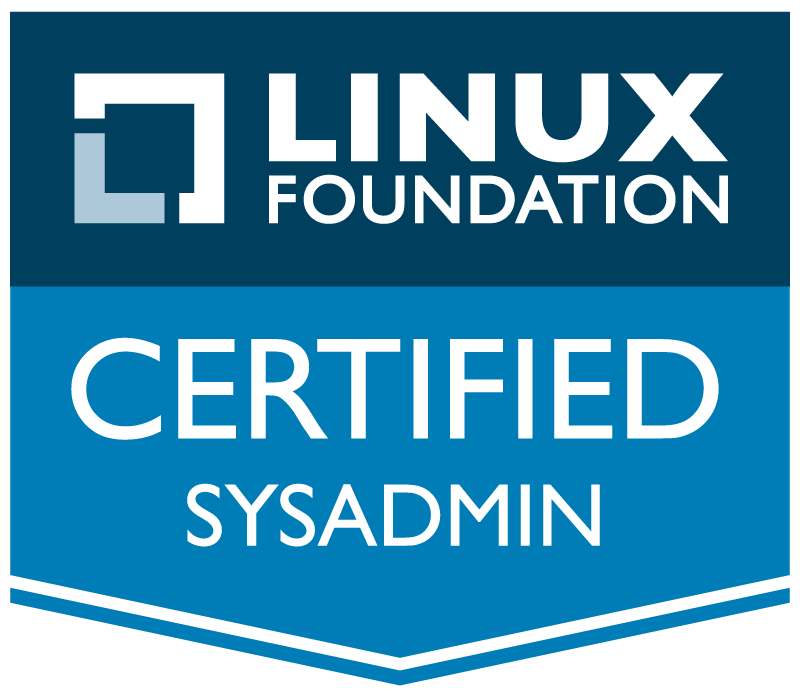Review: Linux Foundation Certified SysAdmin (LFCS)

I switched my primary Operating System to Linux back in 2008. It has been 12 year since and I have been constantly learning new things about it. Things were tough at first but before I knew, I was solving complex issues and helping out in the community. This in turn has helped me a lot in my Penetration Testing career as well because let’s face it; you can’t really accomplish much without open source tools on Linux. Everyone is getting into it now due to the Big Data, Machine Learning, and DevOps wave but for a Penetration Tester, it is always a good idea to learn more about the systems you try to break into. It is never a bad time to pick up a certification to prove your knowledge and that is exactly what I did.
Every year in December, Linux Foundation comes out with a Cyber Monday sale where you can buy their courses and certification exam attempts for a very cheap price in bundles. One of those bundles is usually a combination of Linux Foundation Certified SysAdmin(LFCS) + Linux Foundation Certified Engineer(LFCE). I bought this bundle back in December of 2018 but as lazy as I am, I really took my time to take the exam.
Introduction⌗
The Linux Foundation Certified SysAdmin (LFCS) certification is ideal for candidates early in their Linux system administration or open source career. This certification holds a really great value in the industry because of the Linux Foundation where the creator of Linux kernel “Linus Trovalds” works.
Almost everything these days is running Linux in one form or another. Whether, it is your Android phone, your IOT devices, your servers, etc. It is beneficial for everyone in the tech industry to be able to navigate around the Linux terminal.
The Course Work⌗
To obtain this certification, one must get really good at the following domain competencies
- Essential Commands – 25%
- Operation of Running Systems – 20%
- User and Group Management – 10%
- Networking – 12%
- Service Configuration – 20%
- Storage Management – 13%
The course from Linux Foundation is very huge and detailed but it is not a very good one to be honest. It is focused on providing a lot of information in a minimum amount of time which forces you to cram and then you forget about it the next day. I recommend preparing for LFCS through other resources like “Linux Academy” or “Live Lessons”.
I took the course for LFCS from Linux Academy which provides you with exercises and lab work. The course is nicely designed to not go off track and really focuses on the domain competencies above. If you want my advise on which things to focus on most then focus on the very essentials of the Linux; like User Creation, Permissions, Groups, Services, Security, and Process Management.
Proctored Exam⌗
The LFCS exam is a 2 Hours(120 Minutes) proctored exam which is taken by examslocal.com for which you have to install a browser extension that only works in Google Chrome / Chromium. You need to schedule your exam once you are prepared enough on the available slots on their portal. You are supposed to show up at least 15 minutes prior to the exam to go through your identity check and for the proctor to verify everything. You might even be asked to show around the room before the proctor can release your exam.
I am used to taking proctored exams before from my Security side of certifications but this exam is different because it is not an open book exam and you have to really know what you are doing. You are allowed to look at the man pages or any other help that is available on the terminal they provide but you cannot browse the Internet for any answers.
The questions are usually big/small tasks that you need to complete on the given terminal. Every question/task has a percentage attached to it with an estimated time of how long this task should take. This way, you can determine which questions to go for first depending upon their score. A score of at least 66% is needed to successfully pass the exam and I was able to obtain 83%.
Conclusion⌗
I will not lie to you. The exam is tough. You will really need to get your hands dirty on the command line to achieve your objectives. The actual restraint for me was the time given for the exam which I personally think is not enough to get a score of 100% but people have done it so I cannot really complaint. One thing that I want you to take away from this reading is to get very good with shortcuts around the terminal and really work on the basics.